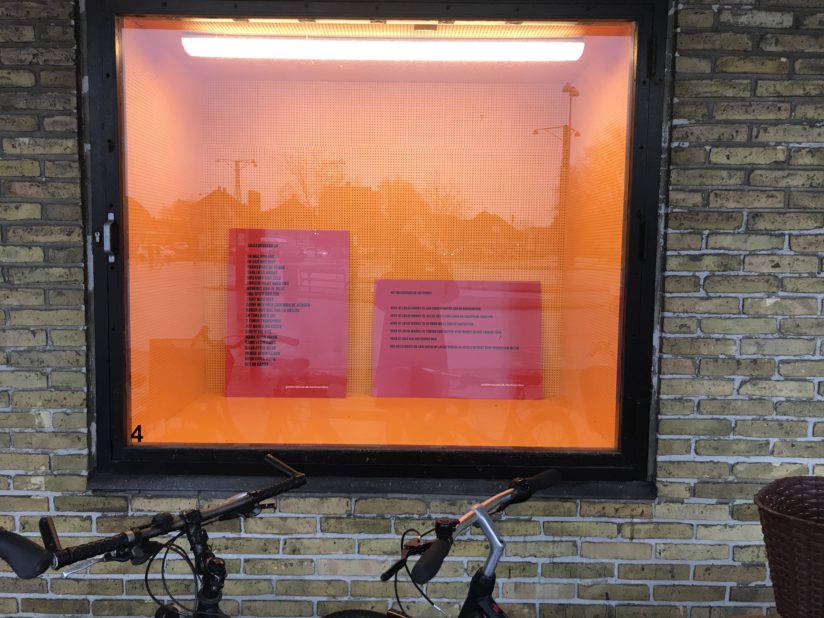 Tools and methods
Tools and methods
- Cultural planning phase Mapping, implementation and management
- Purpose Participation, analysing everyday life, analysing the relationship with the place, intervention in the public space
- Participants: Children, youth, artists, adults
- Number of participants: 10–30
- Author
UCP team (Diana Gerlach); Jesper Sternberg
Tools and methods
Poetry workshops
When it is useful
Different creative tools can be used in the mapping process – also poetry. In the UCP programme, such poetry workshops were conducted with pupils in a school in Guldborgsund, Denmark, but can also be used with adults. In cooperation with poets, workshop participants create short poems illustrating their relationship with different places in the neighbourhood and compare their experiences with these locations. During the workshop, the work of other poets can be used (in this particular workshop, it was Yoko Ono and Vagn Steen). The poems are then placed in the urban space in surprising places for passers-by, encouraging reflection. This method draws on Jenny Holzer's work of putting up posters with poems in New York in the 1970s and 80s. In this way the mapping process is at the same time an intervention in the common space of the neighbourhood, inspiring and changing it at the same time.

Step by step instruction
- Invite a group of people to the workshop – if you want to work with children, it is a good idea to team up with teachers from a local school.
- Each participant comes to the workshop with their own list of: • 5 worst places • 5 best/favourite places • 5 neutral places (ones that do not arouse interest or particular emotions) • 5 most important places
- During the workshop, participants compare randomly chosen places from their personal lists.
- Each person then writes a short text that he/she would like to place in a public location: a question, clues, poems...
- Participants exchange their texts. We ask them to create a new literary form based on their partner’s text – adding, changing, deleting words.
- Texts transferred onto posters, created by participants or professionals, can be put up in the neighbourhood – on walls, in shops, at public transport stops.
- As a result of the workshop, you get a list of places in the neighbourhood that are important for the inhabitants, individual and confronted views on the neighbourhood space, while at the same time already marking the creative presence of cultural planning.

Downloadable materials

